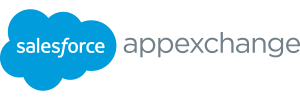We provide you with a 360-degree view of your customer and candidate relationships. Our CRM will help you measure the success of sales and marketing efforts from lead to opportunity to placement. We can also auto-convert new business to job orders to ensure the fastest possible placements.

Master Effective Lead Management
Have a complete view of your leads, including activity history, key contacts, customer communications, and internal account discussions with Chatter. Gain insights from popular social media sites such as Facebook, Twitter and Linkedin – right within TargetRecruit.

Optimize Opportunity Management Strategies
Get a complete view of your team’s deals with Opportunity Management. See stage, products, competition, quotes, and more. Stay connected to the people and information you need to close every sale.

Enhance Collaboration and Customer Engagement
Centralize prospect and customer engagement by unifying communication channels such as email, phone, and social media. Automatically pull in other information, such as recent news about a prospect’s activity. With a consolidated view of every contact, the TargetRecruit Salesforce recruitment CRM can be used to engage your prospects with the right message, at the right time, through targeted digital marketing campaigns and journeys.

Mobilize Business Productivity
TargetRecruit turns your mobile device into a portable sales office. You can log calls, respond to hot leads, work opportunities, or check dashboards, no matter where you are.

Transforming Data into Actionable Insights
Make insightful decisions by turning data into actionable insight that everyone can access from anywhere. Recruitment CRM software dashboards offer a real-time picture of your business at a glance. Dig deeper with detailed reports that anyone can create. And access your reports and dashboards from anywhere.




